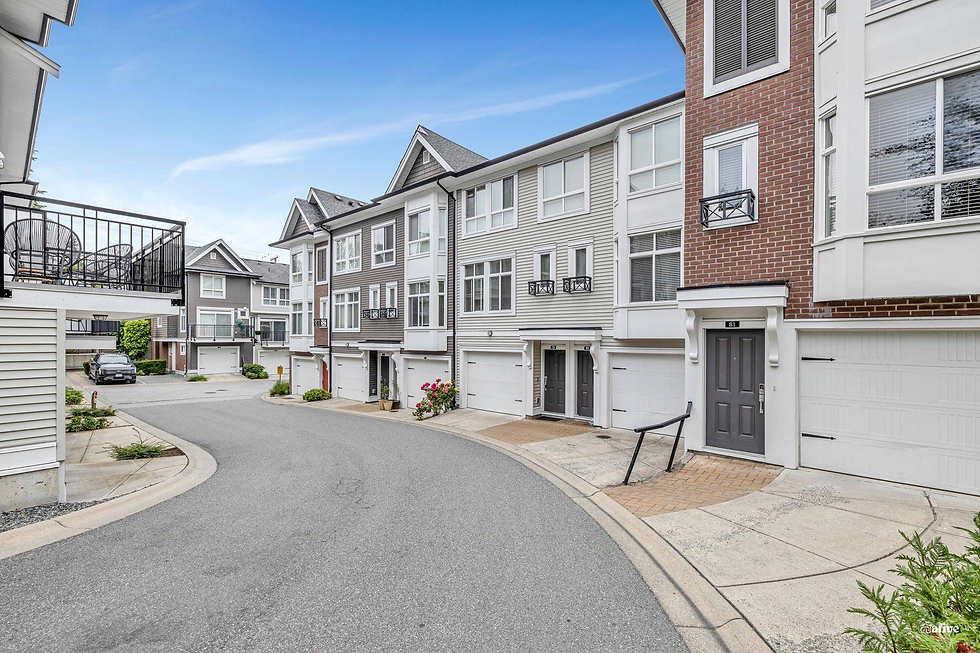Buying Single Family Home: Everything You Need to Know Before You Start
- priscillaking951
- Aug 7, 2025
- 4 min read
When most people think of a traditional home, they imagine a detached structure with its own yard, driveway, and private space. This is exactly what a single family home represents. It’s a standalone residential structure meant to house one family. Unlike condos or townhomes, single family homes don’t share walls, utilities, or entrances with neighboring units, offering greater privacy and independence.
Buying single family home means you're not just investing in four walls and a roof—you’re also investing in a lifestyle. This type of home typically comes with more space, both inside and out, and provides the homeowner full control over the property. Whether it’s landscaping the backyard, remodeling the kitchen, or painting the exterior, you call the shots.
Benefits of Buying Single Family Home
There are many advantages to owning a single family home. One of the most significant is privacy. Because these homes are detached from others, they offer peace and quiet that’s often hard to find in condos or apartments. Homeowners also enjoy complete control over maintenance and renovations without having to seek approval from a condo board or adhere to strict HOA rules—unless in a governed community.
Another big plus is long-term value. Single family homes typically appreciate more steadily compared to multi-unit buildings. This makes them a solid investment. When you're buying single family home, you’re not just purchasing a place to live—you’re securing a financial asset that can grow over time and possibly provide a good return when you're ready to sell.
Budgeting and Financial Planning
Before buying single family home, it's essential to get your finances in order. This means evaluating your savings, income, credit score, and overall financial health. Most experts recommend getting pre-approved for a mortgage to understand how much you can afford. This will also give you a competitive edge when making an offer, as sellers are more likely to take you seriously.
It’s not just about the down payment. You’ll need to budget for closing costs, property taxes, homeowner’s insurance, maintenance, and unexpected repairs. It’s wise to build a financial cushion to handle emergencies without jeopardizing your home investment. Consulting with a financial advisor or mortgage broker can help you plan realistically.

Choosing the Right Location
Location is everything in real estate. Even the most beautiful single family home will lose value if it's in an undesirable area. Consider factors like neighborhood safety, school district ratings, access to public transportation, nearby amenities like parks and shopping, and overall community vibe. Visit the area at different times of day to get a complete picture.
In addition to lifestyle considerations, location impacts your investment. Homes in growing or well-established areas are more likely to appreciate in value. Buying single family home in a sought-after neighborhood can provide both immediate satisfaction and long-term gains. If you're unsure where to look, working with a local real estate expert can offer valuable insight.
Key Home Features to Consider
When shopping for your ideal single family home, make a list of must-haves and nice-to-haves. Consider features like the number of bedrooms and bathrooms, square footage, backyard space, garage size, and kitchen layout. Think about your future needs too—will your family grow? Will you need a home office or an extra guest room?
Pay attention to structural elements like roofing, plumbing, HVAC systems, and electrical wiring. These factors may not be glamorous, but they impact your comfort, safety, and repair costs in the long run. A thorough home inspection is critical to uncover any issues before finalizing the purchase. Don’t let surface appeal blind you to hidden problems.
Working with a Real Estate Agent
An experienced real estate agent can make all the difference in your home buying journey. They understand the local market, can identify good deals, and often have access to listings before they're made public. They also manage the paperwork, negotiations, and deadlines that can be overwhelming for first-time buyers.
When buying single family home, having a trustworthy advocate can save you time, stress, and even money. Look for agents with positive reviews, strong communication skills, and local knowledge. Don’t be afraid to interview a few before making a choice. After all, this is one of the biggest purchases of your life—you deserve top-tier guidance.
Navigating the Home Buying Process
The process of buying a home involves multiple steps. It typically starts with getting pre-approved for a mortgage, followed by finding the right property, making an offer, negotiating terms, and finally closing the deal. Each stage has its own challenges, but with the right preparation and support, you can move through them smoothly.
After your offer is accepted, you'll need to conduct a home inspection, finalize your loan, and review all legal documents. Closing day involves signing lots of paperwork and officially taking ownership of the home. Staying organized and keeping close communication with your agent and lender can help ensure a stress-free experience.
Conclusion: Start Smart with Confidence
Buying single family home is an exciting step, but it requires careful planning, smart budgeting, and informed decision-making. From understanding what a single family home truly is, to choosing the right location, to closing the deal—you now have a roadmap to guide you. Whether it’s your first home or your forever home, knowledge is your best tool.
At Alex Maldeis, we’re here to support you every step of the way. We don’t just help you buy a house—we help you find your home. Our team is dedicated to making the entire experience feel personal, seamless, and rewarding. So when you're ready to begin your journey of buying single family home, reach out to us. Let's make it happen—together.









Comments